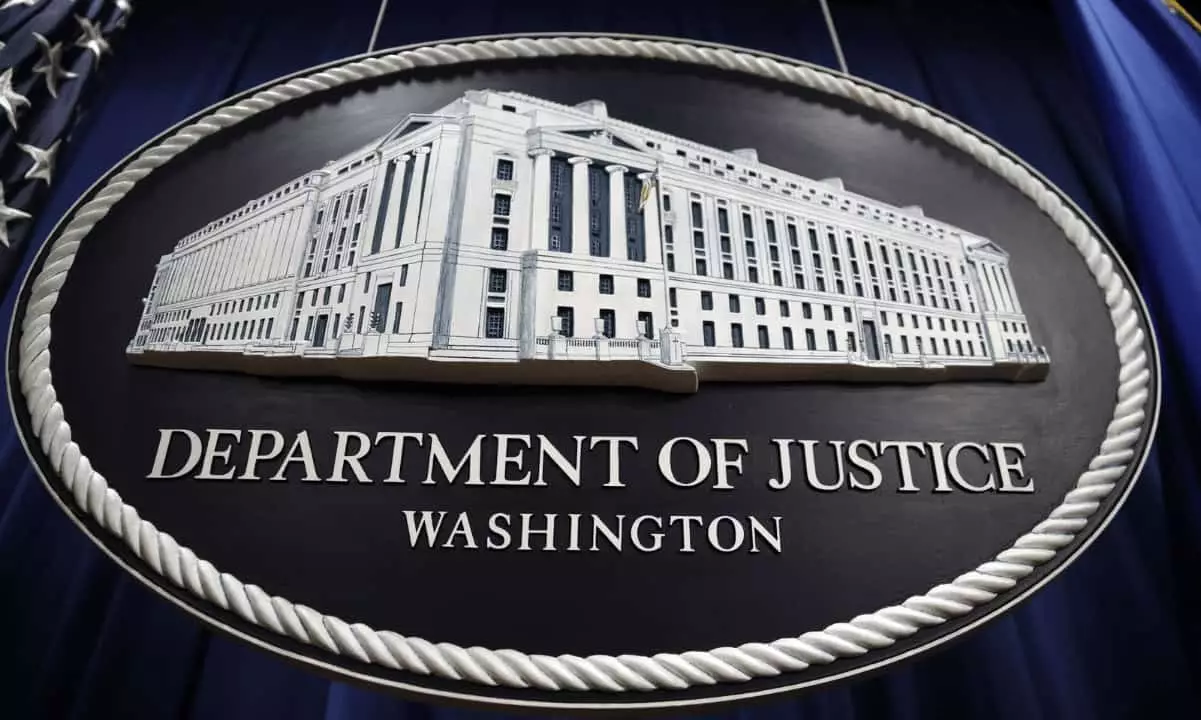In an intriguing development from Indiana, Maximiliano Pilipis, a 53-year-old ex-resident of Noblesville, has found himself at the center of a federal indictment stemming from serious allegations of money laundering and tax evasion. Facing a total of seven charges—five counts of money laundering and two counts of failure to file tax returns—Pilipis’s legal troubles illuminate the complexities and risks associated with the burgeoning world of cryptocurrencies.
Pilipis was the mastermind behind AurumXchange, an unlicensed virtual currency exchange that he operated between 2009 and 2013. This platform served as a digital marketplace where users exchanged Bitcoin and various other cryptocurrencies for U.S. dollars and international currencies. Court records indicate that AurumXchange processed upwards of 100,000 transactions, involving approximately $30 million in funds. Interestingly, the platform managed to accumulate over 10,000 Bitcoins, which—valued at approximately $1.2 million during the peak of its operations—reflects Pilipis’s substantial financial dealings.
Despite the success of AurumXchange, the indictment contends that the operations were riddled with legal pitfalls. Under U.S. law, entities engaging in the transmission of money, including cryptocurrencies, are mandated to adhere to stringent regulations. These include customer identification, transaction reporting to the Department of Treasury, and thorough record-keeping designed to bolster the integrity of the financial system and mitigate national security risks.
Pilipis allegedly exploited this regulatory framework by facilitating anonymous transactions, including those purportedly linked to Silk Road—a notorious darknet marketplace that facilitated illegal transactions using cryptocurrency. Active from 2011 until its closure in 2013, Silk Road embodied the darker side of digital currency, with users seeking anonymity to engage in transactions that spanned drugs and other illicit goods.
The Justice Department has highlighted this aspect as critical, arguing that AurumXchange served as a channel for customers of Silk Road to transform their cryptocurrency into fiat, successfully circumventing identification processes that could lead to criminal prosecution. This manipulation of anonymity, coupled with the absence of licensing for AurumXchange, has positioned Pilipis’s case at the forefront of discussions regarding the enforcement of cryptocurrency regulations.
Following the shutdown of AurumXchange, Pilipis purportedly shifted his tactics to obscure the origins of the funds he had amassed. The indictment further details his subsequent actions between 2018 and 2020, during which he allegedly converted portions of his Bitcoin holdings into U.S. dollars to invest in real estate in Arcadia and Noblesville. Despite generating substantial income during this period, he neglected to file federal income tax returns—an oversight that raises significant legal questions regarding his financial practices.
U.S. Attorney Zachary A. Myers underscored the importance of addressing the illicit uses of cryptocurrencies, citing it as a primary focus of the Department of Justice. The indictment of Pilipis reflects not only individual misconduct but also broader concerns about the challenges regulators face in keeping pace with rapidly evolving financial technologies.
If found guilty, Pilipis faces substantial repercussions. The maximum penalty for the charges against him could amount to a decade in prison and fines potentially exceeding $250,000. Sentencing will be determined by a federal district court judge, who will evaluate a multitude of factors based on the U.S. Sentencing Guidelines.
As this case progresses, it shines a glaring light on the often murky intersections of cryptocurrency, legality, and financial ethics. With cryptocurrency becoming an increasingly significant player in the global financial system, cases like Pilipis’s may serve as cautionary tales about the importance of adhering to regulations designed to maintain the legitimacy and safety of emerging financial technologies.


Leave a Reply